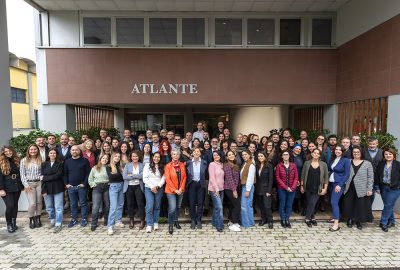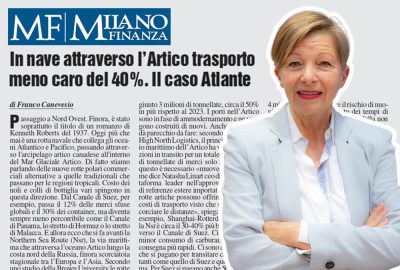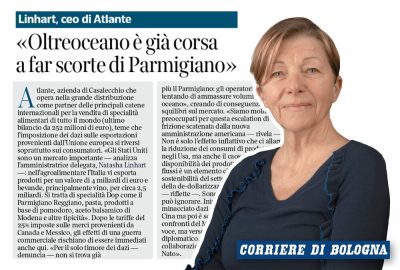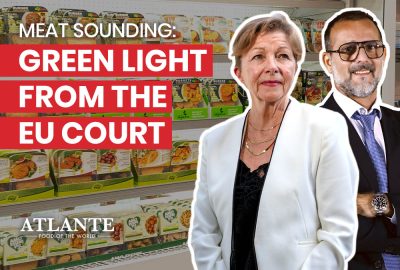Atlante
News
A Task Force against Food Fraud Uncovering, Defeating and Protecting Against Food Fraud

19 July 2023
Product and customer protection is central to Atlante, which is why we have developed a robust Food Fraud Risk Assessment Plan. This plan is based on an in-depth knowledge of food fraud vulnerability assessment tools and techniques, which are applied in a practical and industry-relevant manner. Each product that is marketed is risk assessed, and its inherent risk level is calculated.
The mitigation plan was developed following an established process and is included in Atlante’s BRC and IFS certified Quality Management System. In order to identify products at risk of fraud, Atlante has introduced the role of the Food Fraud Specialist, who consults food fraud guidelines, standards, and specialised websites to assess product vulnerability. They also prepare a fraud risk prevention and mitigation plan and ensure that it is properly implemented.
What is Food Fraud?
Food fraud occurs when there is intentional alteration, misleading labelling, or fraudulent representation of a food to gain an economic advantage or defraud consumers.
Food fraud practices can take many forms, including:
- Ingredient replacement: an inferior or cheaper ingredient is used in place of another ingredient without informing consumers. For example, high-quality olive oil may be replaced with cheaper seed oils
- Origin falsification: the geographical origin of a food is falsified or misrepresented. For example, a fish of unknown origin may be sold as high-quality fish from a certain region
- Misleading labelling: information on a food product label is false or misleading. For example, the label may state ingredients that are not present in the product or misleading nutrition claims
- Trademark counterfeiting: counterfeit foods are produced and marketed by imitating the registered trademarks of legitimate food products. This may concern branded products as well as typical or traditional products
- Food safety risks: food fraud can also pose serious food safety risks, e.g., when harmful or toxic ingredients are added to food.
The consequences of food fraud can be significant for both consumers and businesses. Consumers may be exposed to health risks, misled into buying inferior food products, or deceived into paying higher prices for falsified products. Food businesses may suffer reputational damage, financial losses, and potential legal consequences. In order to fight food fraud, control and monitoring measures are needed along the entire food chain, along with cooperation between regulators, producers, distributors, and consumers themselves.
Identification, Prevention & Mitigation of Vulnerabilities in the Food Supply Chain: Food Vulnerability Assessments
Food Vulnerability Assessments are a key tool to curb the problem of food fraud. These processes aim to identify and assess potential vulnerabilities in the food chain to prevent and mitigate food safety risks, food fraud, and threats to food quality. By involving all actors in the food chain, Food Vulnerability Assessments contribute to ensuring food safety, protecting consumers, and preserving the integrity of the food sector.
In the food sector, vulnerabilities to be monitored may include:
- Ingredient integrity: the Assessment identifies potential ingredient replacements with inferior ingredients, or ingredients that do not meet the required specifications
- Origin and traceability: this activity is aimed at ruling out misleading claims about the origin of food products, including mislabelling or falsification of traceability documents. For example, the sale of fake local or regional products or the falsification of certificates of origin.
- Production processes: identifying vulnerabilities within food production and processing processes, such as unauthorised access to critical areas, fraudulent handling of raw materials or processing steps, or the use of non-compliant production methods
- Distribution and logistics: examining the risks associated with food distribution and logistics, including the possibility of theft, counterfeit packaging, cold chain violations, or the alteration of shipping documents
- Cyber security: awareness of cyber vulnerabilities that could affect information management and control systems in the food supply chain, such as unauthorised access to databases, manipulation of records, or attempts at digital fraud and sabotage.
Identifying and mitigating vulnerabilities is key to ensuring food safety, protecting consumers, and preserving the integrity and reputation of the food industry.
Atlante is on the front line against food fraud
Protecting products and customers is a top priority for Atlante, which is why we have developed a robust Food Fraud Risk Assessment Plan. Our plan is based on an extensive knowledge of the tools and techniques used to identify and assess food fraud vulnerabilities. It is applied to the food industry in a practical and relevant way. Each marketed product is assessed for its inherent level of risk.
The implementation of the plan is led by Atlante’s Food Fraud Specialist, a role that Atlante has recently introduced. They are responsible for identifying raw materials and/or finished products that are at risk of fraud by consulting guidelines, food standards portals, and websites specialising in Italian, European, and World food fraud. The Food Fraud Specialist also conducts a vulnerability assessment on all products, and then prepares a fraud risk prevention and mitigation plan. They then ensure that the activities in the prevention and mitigation plan are implemented in the appropriate manner and timeframe.
By using reliable data sources such as SafetyHud, RASFF, FAN, Food Legis, EU Knowledge Centre for Food Fraud and Quality, IFS Food Fraud monitoring report, Aretè Agrifood, National Food Crime Units – Food Fraud Resilience Self Assessment, and the Food Industry Intelligence Network, Atlante carries out various activities to detect potential food fraud.
Information sources and databases are consulted with a frequency defined by Atlante’s Food Fraud Specialist (from a minimum of once a week to a maximum of once a month, depending on the product category).
Risk identification and quantification
The criteria used to assess and quantify the level of risk are as follows:
- Fraud incident history for a specific product
- Presence of claims associated with the product
- Presence of specific product and supply chain certifications
- Supplier reliability and historical evidence of ‘fraudulent’ episodes
- Economic factors affecting the product (value) and producer (financial rating)
- Macroeconomic context – availability of the product on the market, price trends, and ongoing speculation
- Ease of fraudulent activity verification
- Supply chain complexity.
Mitigation Plan
Once the risk has been assessed and quantified, Atlante prepares the Fraud Risk Mitigation Plan using a numerical calculation system and defined control measures.
The Mitigation Plan is product-specific and adapted to each point in the supply chain.
It is reviewed every six months, as provided for in the Quality Management System Procedures.
The main monitoring activities which have been identified are:
- Product analysis, including modern isotopic techniques for defining geographical origin and genetic techniques to define the variety/species
- Traceability tests
- Mass balance calculations
- On-site audits.
The mitigation plan is integrated into our Quality Management System, certified according to BRC and IFS standards and implemented by Atlante’s Food Fraud Specialist, who consults guidelines, standards and specialised websites to assess the vulnerability of each product.
Vulnerability assessment in the food sector requires an integrated approach involving all stakeholders in the food supply chain, such as producers, suppliers, distributors, regulators, and control bodies. It is essential to identify and mitigate vulnerabilities to ensure food safety, protect consumers and preserve the integrity and reputation of the food sector.
An integrated approach to protect the reputation of the food sector
The quality, legality and wholesomeness of our products are the cornerstone of our modus operandi, and we protect them through a robust Food Fraud Risk Assessment plan. Our approach is based on our extensive knowledge of tools and techniques to identify and assess food fraud vulnerabilities, and we apply it in a way that is practical and relevant to the food industry. Each marketed product is carefully assessed to identify its inherent level of risk.
Our mitigation plan is integrated into the Quality Management System, which is certified according to BRC and IFS standards. It is implemented by Atlante’s Food Fraud Specialist, an expert who consults guidelines, standards, and specialised sites to assess the vulnerability of each product.
Assessing vulnerabilities in the food sector requires an integrated approach involving all actors in the food supply chain, including producers, suppliers, distributors, regulators, and control bodies. Identifying and mitigating vulnerabilities is essential to ensuring food safety, protecting consumers, and preserving the integrity and reputation of the food industry. At Atlante, we are committed to maintaining the highest standards and providing safe and reliable products to our customers.





